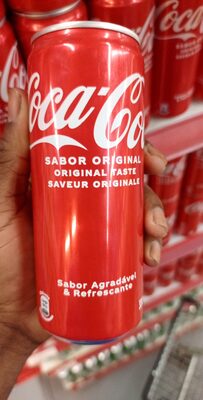
Barcode: 5449000000996
Coca-Cola Can
HALAL
📝 Reason: All major ingredients (water, sugar, carbon dioxide, E150d caramel color, phosphoric acid, caffeine) are Halal according to international Islamic regulatory bodies and the provided Halal_ECodes_list. However, ‘natural flavorings’ is considered Doubtful (2) because the exact source/origin is not specified, and it can contain Haram components or alcohol as a solvent. Absence of clear Halal certification makes this ingredient Doubtful. According to Islamic principles (Quran 5:3) and IFANCA guidance, all doubtful or unclear ingredients should be treated with caution. For further reference, see IFANCA and Eat-Halal guidance.
🏷️ Category: Beverages And Beverages Preparations, Beverages, Carbonated Drinks, Sodas, Colas, Pt:Bebidas Cafeina
📄 Certificates: Vegetarisch, Vegan
Ingredients:
Details
Understanding the Halal Status of Coca-Cola Can
Coca-Cola is one of the world’s most popular beverages, enjoyed by millions globally. However, for those adhering to a Halal diet, understanding the Halal status of such products is crucial. In this post, we will explore the Halal status of Coca-Cola Can, diving into its ingredients and E-numbers to provide a detailed overview.
Halal Status Overview
The Coca-Cola Can is classified as HALAL based on an examination of its ingredients. Each major component fulfills Halal requirements outlined by international Islamic regulatory bodies. However, it’s important to note that one ingredient, ‘natural flavorings,’ falls into a ‘Doubtful’ category due to the uncertainties surrounding its source.
Ingredient Breakdown
Here’s a closer look at the individual ingredients used in Coca-Cola:
- Water: Pure water is essential for any beverage and is naturally Halal. It does not contain any Haram or doubtful components. (Source)
- Sugar: Sugar is generally Halal unless it is processed with non-Halal clarifying agents, which is not indicated in the Coca-Cola ingredients. (Source)
- Carbon Dioxide: This naturally occurring gas is used for carbonation and is classified as Halal. (Source)
- Color E150d (Sulphite Ammonia Caramel): E150d is recognized by most Halal certification authorities as Halal. It is a safe coloring agent used in beverages. (Source)
- Acid: Phosphoric Acid: Known as E338, it is Halal as it is a chemical inorganic acid. (Source)
- Natural Flavorings: This is where the uncertainty lies. Natural flavorings can have plant or animal origins and may use alcohol as a solvent. Due to the lack of a clear Halal certification, this ingredient is considered Doubtful. (Source)
- Flavor Caffeine: This component is either synthesized or derived from plants like coffee or tea and is accepted as Halal. (Source)
Conclusion: Navigating Doubtful Ingredients
While the main ingredients of Coca-Cola Can are predominantly Halal, the ambiguity surrounding ‘natural flavorings’ requires caution. According to Islamic principles (Quran 5:3) and guidance from organizations like IFANCA, all dubious or unclear ingredients should be treated with care.
It’s essential for consumers to make informed choices when it comes to ingredients they consume, especially in the context of Halal regulations. Although Coca-Cola Can has been marked as Halal, it is advisable to seek further clarification regarding the source of the ‘natural flavorings’ for complete peace of mind.
In summary, Coca-Cola Can satisfies the Halal criteria for most ingredients, but always stay vigilant regarding those that remain uncertain. For more information, virtually any ingredient can be evaluated through [IFANCA](https://ifanca.org) and [Eat-Halal](https://www.eat-halal.com) resources.
